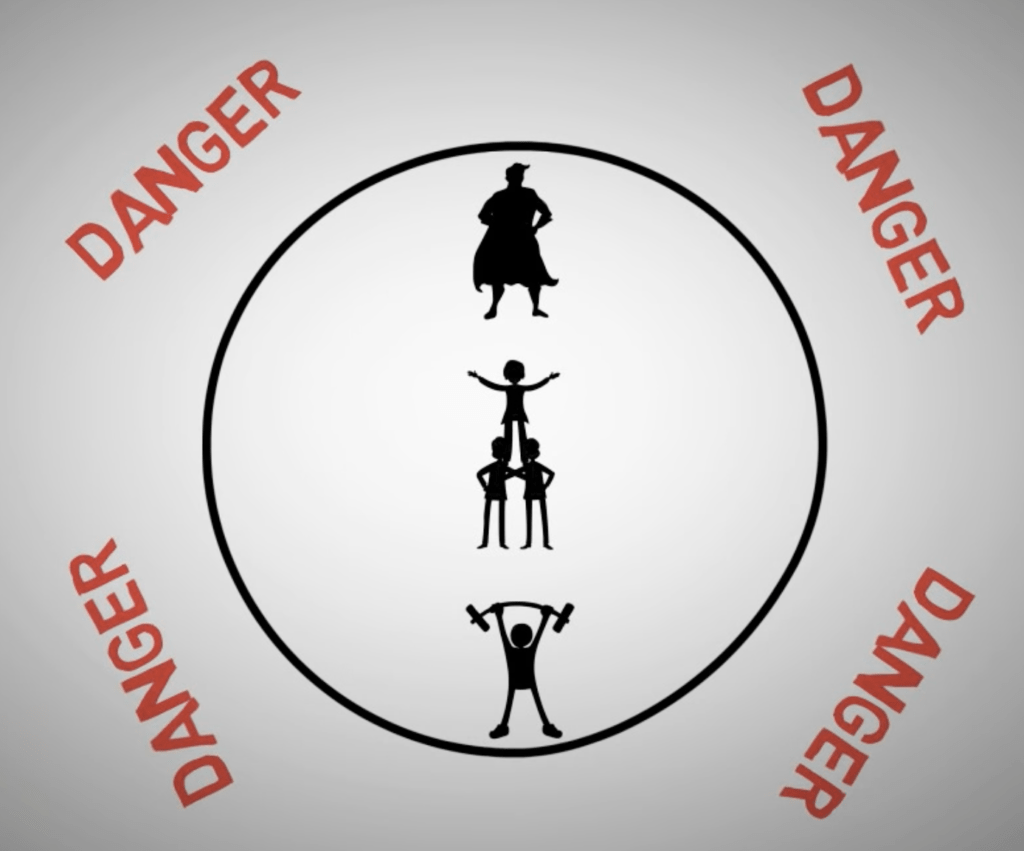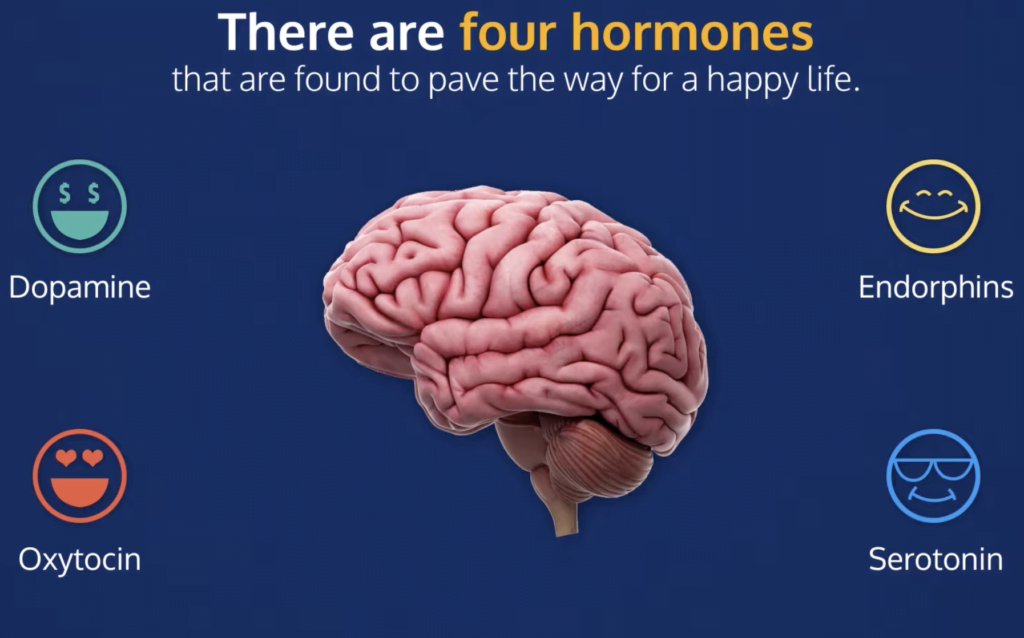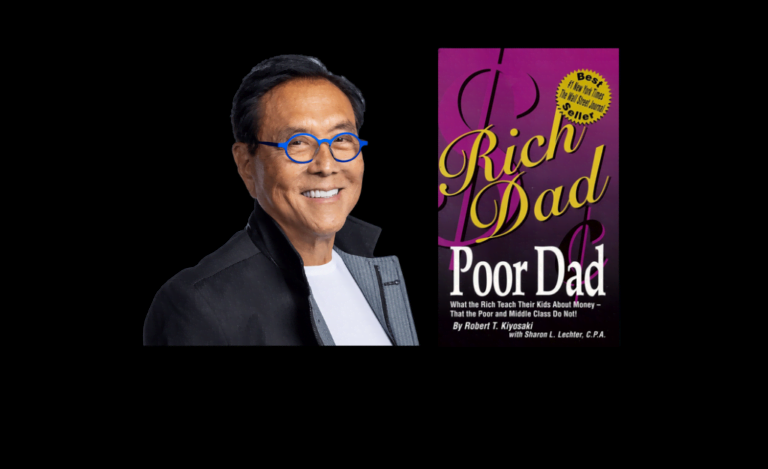Disclaimer: This post may contain affiliate links. For more information, please visit our Disclaimer Page.
Introduction
Imagine living in a society where everyone wakes up eager to go to work, feels valued and important all day, and returns home happy. This is not a dream. In his book “Leaders Eat Last,” Simon Sinek examines methods that help great leaders foster this culture in their organizations.
He discovers a lot of comparable instances. Marine Corps officers frequently give their lives to protect their subordinates rather than just their place at the table. Leaders of large corporations and governments put the interests of their organizations and nations ahead of their own.
An ancient biological mechanism that helped Homo Sapiens become the most successful species on Earth controls how they behave. The capacity for cooperation is this mechanism.
As you read this summary, you will discover the importance of strong leadership, based on trust and altruism, in running a business.
You will also discover that:
– group cohesion around a strong leader is an essential element for the success of a company;
– true leadership is a contract of trust whereby the leader undertakes to guide and protect the people who follow him;
– current society and future generations suffer from its tendency towards individualism, which is expressed at all levels of the company;
– faced with this challenge, leaders are responsible for recreating humane and fair corporate cultures.
So, if the book is called “Leaders Eat Last,” what does that statement mean?
Ear it from the author himself in the short video below.
Circle of Safety
At the top of the list of priorities lies the creation of a “Circle of Safety.” The world around us is fraught with dangers and obstacles that threaten to impede our progress.
While it was saber-toothed tigers in the past, today’s challenges include unrelenting competition, rapidly advancing technology, cultural barriers, deadlines, and personal troubles.

The leader’s responsibility is to cultivate a work environment where employees feel secure and content. In this “Circle of Safety,” employees exhibit increased loyalty, are more prone to innovate and collaborate, and are eager to put in extra effort to drive the company forward.
To ensure the safety of employees, leaders must practice open and honest communication, allow for challenges and questioning, and take a genuine interest in employees’ perspectives. By clarifying through open-ended questions, leaders foster a safe and secure work environment.
People Over Profit
In the past, successful companies emphasized ensuring that every interaction was as positive as possible for customers and employees.
However, in recent times, many companies have shifted their focus, prioritizing pleasing shareholders above all else with the promise of increased profits.
Unfortunately, this often results in a reduction in quality and a decrease in employee satisfaction, which, paradoxically, can negatively impact the business and, in turn, the very shareholders they set out to please.

Simon Sinek reminds us that happy and satisfied workers are far more productive, valuable, and rewarding. The key to success, then, is to put people first and prioritize their needs. If you do this, the profits will naturally follow.
As actionable advice, leaders should focus on the well-being of their staff and make decisions for the long term rather than solely chasing profits.
“You can easily judge the character of a man by how he treats those who can do nothing for him.”
Simon Sinek, Leaders Eat Last
Delegation is the ultimate lever of leadership. It allows you to multiply yourself and your efforts. It energizes and empowers others to stretch their capabilities and grow in their roles and responsibilities.
The Power of Delegating
For a business to thrive, leaders must relinquish some control and give their staff the autonomy to make decisions and act accordingly. With this freedom, employees can work to the best of their abilities. Empowered employees are more engaged, work harder, and feel fulfilled.
The secret to success is to empower employees through training, delegation, and, most importantly, trust. Leaders can tap into their employees’ full potential and drive their businesses to success by creating a culture of trust. Remember, happy employees lead to happy customers and a thriving business. So, don’t be afraid to give away a little power. It will pay off in the long run!
Inspiration
As a leader, igniting passion in your team is a crucial task, and one way to do this is by defining a clear “why” for the team. This means identifying the core beliefs, values, and purpose behind what your team does and how it positively impacts the department, company, or even the world.
By getting employees emotionally invested and understanding the bigger picture, you’ll make them feel special and foster a sense of belonging and unity within the team.
Actionable advice: Make it clear to your team why their work matters. By doing so, you’ll find they work harder daily to do more.

Trust is also a key component of effective leadership. Customers buy from companies they trust, and workers are loyal to employers they trust for the same reason.
That’s why acting with integrity and constantly communicating honestly is so important. Building trust with your team will create a culture that will drive your team and business to success.
Actionable advice: Act with integrity at all times and always communicate honestly. Doing so will build trust with your team and customers and lay the foundation for a successful business.
“The ability of a group of people to do remarkable things hinges on how well those pull together as a team.”
Simon Sinek, Leaders Eat Last
Empathy Is a formidable Asset to any Organization.
Empathy is undoubtedly a vital weapon in the arsenal of any organization. It’s the power to comprehend and truly feel the emotions of others.
Empathy is a cornerstone in constructing a work environment of trust and reverence, allowing leaders to grasp their team members’ necessities, leading to intelligent decisions and heightened spirits.
And by comprehending the feelings and needs of customers, empathy can foster long-lasting relationships and happy clientele. In the end, empathy shapes a culture of collaboration and respect, an absolute necessity for an organization to thrive.
“The true price of leadership is the willingness to place the needs of others above your own.”
Simon Sinek, Leaders Eat Last
Mother Nature’s Reward Structure
As previously explored, our biology adapts to preserve our well-being through a carefully crafted system. In her infinite wisdom, Mother Nature has devised an incentive system to secure our survival and success in trying times. This system is responsible for the instincts that drive us to act in our self-interest.
When faced with danger, our defenses are heightened, while opportunities prompt repeat behaviors. But why is this knowledge relevant? After all, isn’t it common knowledge?

Well, a remarkable leader comprehends the motivations behind a person’s actions. By comprehending the underlying biological systems that guide us, you are better equipped to understand those around you. And that, my friends, is the key to exceptional leadership.
Let me simplify it for you – our lives revolve around four critical biological chemicals – Endorphins, Dopamine, Serotonin, and Oxytocin. These chemicals dictate our instincts, moods, emotions, and more. Once you grasp the workings of these chemicals, you can better control your actions and behaviors and, therefore, understand others at a deeper level.
Conclusion
Simon is a trailblazer in the leadership movement, and his book is a must-read for all who hold or aspire to a leadership role. The book expertly revisits age-old leadership principles with a fresh and updated perspective, offering valuable insight for those looking to improve their leadership skills in both their professional and personal lives.
F.A.Q. about “Leaders Eat Last” Book
What is “Leaders Eat Last” about?
“Leaders Eat Last” is a book by Simon Sinek that explores the concept of leadership and how it can be used to create a more positive and productive workplace. The book emphasizes the importance of creating a culture of trust, collaboration, and mutual support and offers practical advice for achieving these goals.
What are the main themes of “Leaders Eat Last”?
Some of the main themes in “Leaders Eat Last” include the importance of creating a culture of trust and collaboration, the role of leadership in fostering a positive workplace environment, and the benefits of putting the needs of others before one’s own.
What is included in the resume of “Leaders Eat Last”?
The resume of “Leaders Eat Last” includes a summary of the book’s key ideas and themes and practical tips and exercises for applying these concepts to one’s own leadership style. The resume also provides a brief biography of the author, Simon Sinek.
How can “Leaders Eat Last” help leaders improve their organizations?
“Leaders Eat Last” can help leaders improve their organizations by offering practical advice and inspiration for creating a more positive and productive workplace environment. The book emphasizes the importance of creating a culture of trust, collaboration, and mutual support and provides concrete strategies for achieving these goals.
What other books has Simon Sinek written, and how do they relate to “Leaders Eat Last”?
Simon Sinek has written several other leadership and personal development books, including “Start With Why” and “The Infinite Game.” These books share many of the same themes and principles as “Leaders Eat Last” and offer additional insights and strategies for achieving success as a leader.
“Leaders Eat Last” Book Quotes
“In the end, we are only as strong as we are united, as weak as we are divided.”
“Leaders sacrifice their own comfort—even their own survival—for the good of those in their care.”
“The best leaders are the ones that are able to give up their own needs and desires in favor of the team.”
“When leaders make the safety of the group their priority, the group will eventually make the leader their priority.”
“The strength of a culture is a direct reflection of the level of trust within it.”
“Leaders need to realize that their true job is to serve those around them.”
“The cost of bad behavior is that it always costs more than the benefit of a single moment of glory.”
“When leaders put their people first, the people are more likely to put the leader first.”
“Leadership is not just what you do, it’s how you make people feel.”
“The role of the leader is to help those around them become better versions of themselves.”
You can read Simon Sinek`s Biography by clicking the image below! Enjoy!!!
Disclaimer: This blog post is a summary or resume of the book and is not intended to dispense the reading of the original book. This post aims to provide a general overview of the book’s main ideas and themes and encourage readers to read the complete book to gain a deeper understanding of the material. The information presented in this post is intended to be something other than a substitute for the original book and should be used as a supplement to, not a replacement for, the entire book. We strongly encourage readers to read the complete book to benefit from its ideas and teachings fully.









